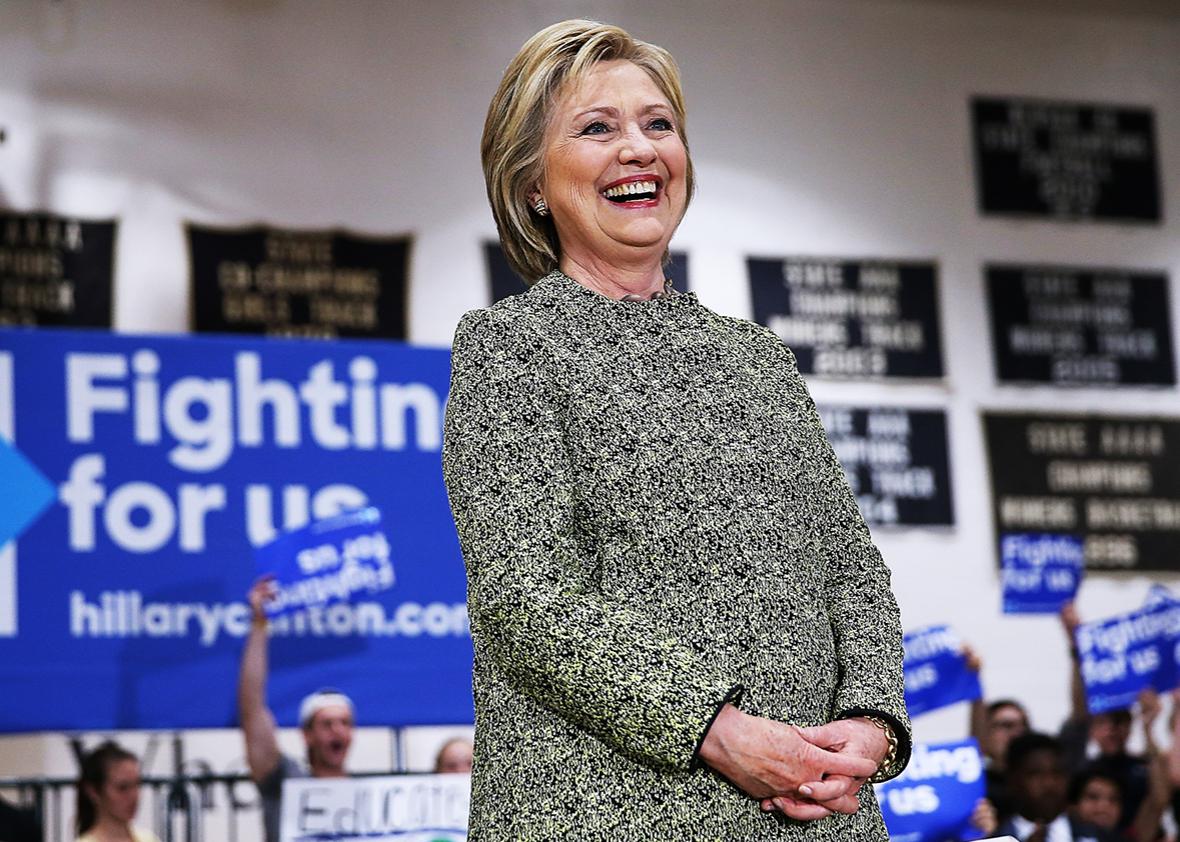This article appears in slightly different form in the Financial Times.
In the Democratic debate this week in Miami a reporter from the Washington Post asked Hillary Clinton a blunt question. Citing a poll result that only 37 percent of Americans consider her honest and trustworthy, the journalist asked, “Is there anything in your own actions and the decisions that you yourself have made that would foster this kind of mistrust?”
Clinton looked pained and responded with some emotion. “Look, I have said before and it won’t surprise anybody to hear me say it, this is not easy for me … not a natural politician, in case you haven’t noticed, like my husband or President Obama. So I have a view that I just have to do the best I can, get the results I can, make a difference in people’s lives, and hope that people see that I’m fighting for them.”
It was a poignant moment. After a quarter-century on the national stage, Clinton can no longer console herself that voters just haven’t gotten to know her yet. They know her very well, and a solid, unmovable mass of them simply do not like her. The battering she has taken over her use of a private email server as secretary of state and the pseudo-scandal regarding the 2012 terrorist attack in Benghazi have reinforced the belief that she is less than truthful. Averaging various polls, her favorable/unfavorable rating now hovers at around 40–53. A 13-point negative gap in favorability would bode badly, were she not facing the prospect of a likely Republican nominee with a 28-point gap.
This was the week that Clinton hoped to turn her full attention to running against Donald Trump. Instead, she found herself not yet finished with the primaries. In Michigan, where polls showed her beating Bernie Sanders by 20 points, she ultimately lost in a tight race.
Even if Sanders outperforms expectations in a similar way in next Tuesday’s big primaries in Ohio and Florida, he faces prohibitive odds of winning enough delegates to gain the Democratic nomination. But with a technical chance, he remains in the race, raising other issues that damage Clinton’s credibility. In Wednesday’s debate, Sanders again hammered at her refusal to release the text of speeches she delivered to Goldman Sachs, for which she was paid $225,000.
It may be that even as a little-loved and not-fully-trusted politician, Clinton won’t have to do much to defeat Trump in November. Less-educated white men, who constitute his only reliable base of support, are shrinking as a share of the electorate. In 2012, Mitt Romney lost the presidency while winning 62 percent of the overall white male vote. So long as black and Latino people come out to vote, Trump might need something closer to 70 percent of the white male vote to win. All the polls currently show Clinton beating him handily in a head-to-head matchup.
But given the way Trump has defied rational expectation thus far, those around Clinton can’t risk being complacent. To be confident about defeating him in the election in November, she will have to figure out how to accomplish two tasks that are difficult: Address her own intractable unpopularity, and deflate a poisonous windbag who has so far proved impervious to criticism.
Those advising Clinton believe that the negative strategy will be the easier. Attacking Trump on a daily basis will not be a job for Clinton herself. For that, she will have a formidable team of supporters: her husband, President Barack Obama, Vice President Joe Biden, as well as whomever she chooses as a running mate. The Democrats will also seek help stopping Trump from others, ranging from Warren Buffett to Oprah Winfrey to Republicans like Mitt Romney. Come midsummer, Clinton’s surrogates will be traversing the country warning voters about how dangerous Trump is. All will be seeking ways to get under Trump’s skin, the most effective of which appear to be casting doubt on his claims of success in business and undermining his wild exaggerations about his own wealth.
The challenge of remaking Clinton’s own image will be much tougher. Trump and his allies will yammer unceasingly about the FBI investigation into her alleged security infractions, warning that she could be indicted at any time—remotely possible, but unlikely. She will have some chance to show a softer side at the Democratic convention in Philadelphia in July, which follows her pregnant daughter Chelsea’s due date for the Clintons’ second grandchild. Instances of warmth may ensue.
But trying too hard to humanize Clinton could backfire, as it did in 2000 with Al Gore’s attempts at a makeover when he ran for the Democrats. A wiser strategy would be to reinforce what people do like about Clinton. Whether or not they fully trust her, large majorities of voters view her as competent, decisive, and prepared for the job of being president. Politicians don’t need to be beloved in order to be successful. A measure of respect is sufficient.
